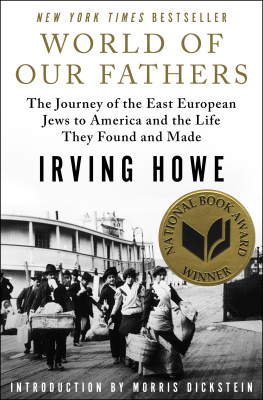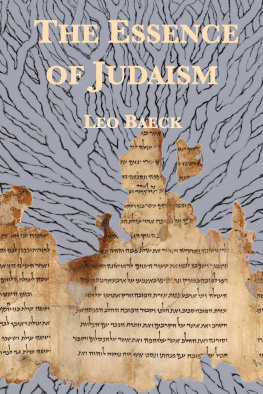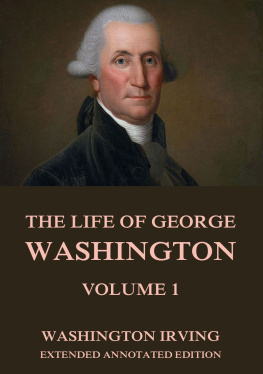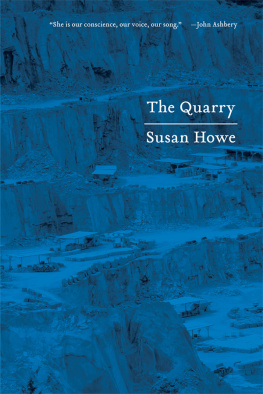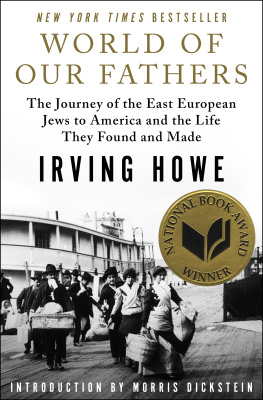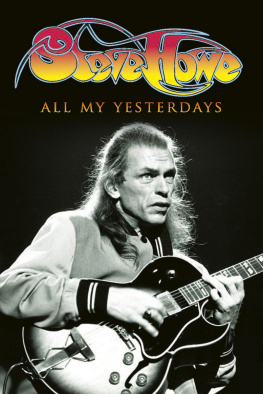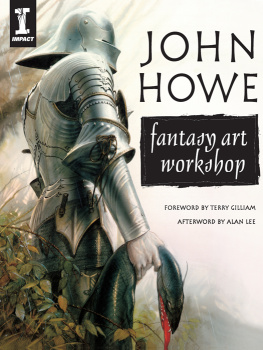Irving Howe - World of Our Fathers
Here you can read online Irving Howe - World of Our Fathers full text of the book (entire story) in english for free. Download pdf and epub, get meaning, cover and reviews about this ebook. year: 2017, publisher: Open Road Media, genre: Home and family. Description of the work, (preface) as well as reviews are available. Best literature library LitArk.com created for fans of good reading and offers a wide selection of genres:
Romance novel
Science fiction
Adventure
Detective
Science
History
Home and family
Prose
Art
Politics
Computer
Non-fiction
Religion
Business
Children
Humor
Choose a favorite category and find really read worthwhile books. Enjoy immersion in the world of imagination, feel the emotions of the characters or learn something new for yourself, make an fascinating discovery.
- Book:World of Our Fathers
- Author:
- Publisher:Open Road Media
- Genre:
- Year:2017
- Rating:3 / 5
- Favourites:Add to favourites
- Your mark:
- 60
- 1
- 2
- 3
- 4
- 5
World of Our Fathers: summary, description and annotation
We offer to read an annotation, description, summary or preface (depends on what the author of the book "World of Our Fathers" wrote himself). If you haven't found the necessary information about the book — write in the comments, we will try to find it.
World of Our Fathers — read online for free the complete book (whole text) full work
Below is the text of the book, divided by pages. System saving the place of the last page read, allows you to conveniently read the book "World of Our Fathers" online for free, without having to search again every time where you left off. Put a bookmark, and you can go to the page where you finished reading at any time.
Font size:
Interval:
Bookmark:

World of Our Fathers
The Journey of the East European Jews to America and the Life They Found and Made
Irving Howe

CHAPTER ONE
Origins
The year 1881 marks a turning point in the history of the Jews as decisive as that of 70 A . D ., when Tituss legions burned the Temple at Jerusalem, or 1492, when Ferdinand and Isabella decreed the expulsion from Spain. On March 1, 1881, Alexander II, czar of Russia, was assassinated by revolutionary terrorists; the modest liberalism of his regime came to an end; and within several weeks a wave of pogroms, inspired mostly by agents of the new government, spread across Russia. For the Jews packed into the Pale and overflowing its boundaries, the accession of Alexander III signified not only immediate disaster but also the need for a gradual reordering of both their inner life and their relationship to a country in which Jews had been living for hundreds of years. The question had now to be asked: should the east European Jews continue to regard themselves as permanent residents of the Russian empire or should they seriously consider the possibility of a new exodus?
There had already been a trickle of Jewish emigration to America7,500 in the years between 1820 and 1870 and somewhat more than 40,000 in the 1870s. But the idea of America as a possible locale for collective renewal had not yet sunk deeply into the consciousness of the east European Jews. During the reign of Alexander II many of them had experienced modest hopes of winning equal rights as citizens. Others hoped to persuade the less benighted agents of Russian autocracy that the Jews merited a share in its prospective enlightenment. By the 1880s that hope was badly shaken, perhaps destroyed.
At no time could the life of the Jews in Russia have been described as comfortable. With the caprice of absolutism, the monarchs had alternated between prolonged repression and intervals of relaxation. They had frequently believed that toleration of other religions might bring a risk of disloyalty to the supreme truth of Christianity, and the more fanatical among them had tried to convert the Jews through coercion and force. Rarely were the Jews able to ease their guard against blows from above and below, bureaucrats and folk, and never could they see themselves as citizens like all others. Their role as pariahs, the stiff-necked enemies of Christ, was fixed both in official doctrine and popular legend. Repression took the forms of economic harassment and legal humiliation, sometimes pogroms and accusations of ritual blood murder. At intervals these policies would be eased a little, and the Jews would be allowed, as part of a tendency toward Westernization, to settle in outlying southern and western districts. With the conquest of new territories in the south during the middle of the eighteenth century and the partition of Poland a few decades later, the number of Jews under Russian domination greatly increased. For a time Catherine II welcomed them as merchants and traders who might stimulate the economy, but soonin what seems a constant alternation between tightening and loosening of the chains of powerher exercise in tolerance came to an end.
Once the Holy Alliance sealed the defeat of Napoleon and stabilized Europe as a concert of reaction, the conditions of the Russian Jews, as indeed of almost all Russians, sadly deteriorated. The reign of Nicholas I, from 1825 to 1855, proved to be a nightmare. Over six hundred anti-Jewish decrees were enacted, ranging from expulsions from villages in which Jews had traditionally resided to a heavy censorship of Yiddish and Hebrew books; from meddling with the curriculums of Jewish schools to a conscription that tore Jewish children away from parents, often at ages between twelve and eighteen, for periods of up to twenty-five years. In his memoirs Alexander Herzen has unforgettably portrayed a convoy of conscripted Jewish children:
You see, they have collected a crowd of cursed little Jewish boys of eight or nine years old [a Russian officer tells Herzen in a village in the province of Vyatka]. they just die off like flies. A Jew boy, you know, is such a frail, weakly creature he is not used to tramping in the mud for ten hours a day and eating biscuit being among strangers, no father nor mother nor petting; well, they cough and cough until they cough themselves into their graves.
it was one of the most awful sights I have ever seen, those poor, poor children! Boys of twelve or thirteen might somehow have survived it, but little fellows of eight and ten.
Pale, exhausted, with frightened faces, they stood in thick, clumsy, soldiers overcoats, with stand-up collars, fixing helpless, pitiful eyes on the garrison soldiers who were roughly getting them into ranks. And these sick children, without care or kindness, exposed to the icy wind that blows unobstructed from the Arctic Ocean, were going to their graves.
The acknowledged aim of Nicholass measures was the destruction of the Jewish community as a social and religious body. One of his secret decrees explained, The purpose in educating Jews is to bring about their gradual merging with the Christian nationalities and to uproot those superstitious and harmful prejudices which are instilled by the teachings of the Talmud. Through the following century, at least until a more scientific precision was developed in the art of murder, the Nicolaitan persecutions would leave a shudder vibrating in the minds of the Jews, with stories passed from generation to generation, even to children of immigrants in America, about little boys forcibly converted by Russian officers or accepting a death of martyrdom rather than yield to such conversion.
No wonder that Alexander II, whom Disraeli called the kindliest prince who has ever ruled Russia, aroused enthusiasm among the Jews. Alexander II reduced the period of military service to five years; opened the doors of the universities to some Jews; permitted Jewish businessmen to travel in parts of Russia from which they had been barred. Under his reign the forty million serfs of Russia were freed, though the economic consequences for both the peasants and that narrow stratum of Jews who had occupied a precarious position between landowner and peasants were by no means completely advantageous. But once this weak effort at official liberalism collapsed and the pogroms of 1881 left the Jews stunned and bleeding, it was no longer possible, even for the Russified middle-class Jewish intellectuals, to hold out much hope for Fabian solutions. Though not as bestial as Nicholas, Alexander III pursued a steady anti-Jewish policy. Neither stability nor peace, well-being nor equality, was possible for the Jews of Russia.
The World of the Shtetl
For several hundred years this culture had flourished in eastern Europe. Bound together by firm spiritual ties, by a common language, and by a sense of destiny that often meant a sharing of martyrdom, the Jews of eastern Europe were a kind of nation yet without recognized nationhood. Theirs was both a community and a society: internally a community, a ragged kingdom of the spirit, and externally a society, impoverished and imperiled.
The central trait of this culture was an orientation toward otherworldly valuesthough this may be too simple a way of describing it. For the world of the east European Jews, at least in its most serious and ideal manifestations, did not accept the Western distinction between worldly and otherworldly. Kierkegaards dictum that between God and man there is an infinite, yawning, qualitative difference might have struck them as a reasonable account of their actual condition, but not as a statement of necessary or inescapable limits. In order to survive, the east European Jews had to abide by the distinction between worldly and otherworldly, but they refused to recognize it as just or inevitable. In their celebration of the Sabbath and in the sharp line they drew between the Sabbath and the rest of the week, they tacitly acknowledged that they had to live by the ways of the world; this was the price of exile and dispersion. Ideally, however, the worldly and otherworldly should be onehere on earth. Every Jew would have recognized immediately the symbolic rightness in the refusal of Reb Shloyme, a character in Peretzs drama
Font size:
Interval:
Bookmark:
Similar books «World of Our Fathers»
Look at similar books to World of Our Fathers. We have selected literature similar in name and meaning in the hope of providing readers with more options to find new, interesting, not yet read works.
Discussion, reviews of the book World of Our Fathers and just readers' own opinions. Leave your comments, write what you think about the work, its meaning or the main characters. Specify what exactly you liked and what you didn't like, and why you think so.

